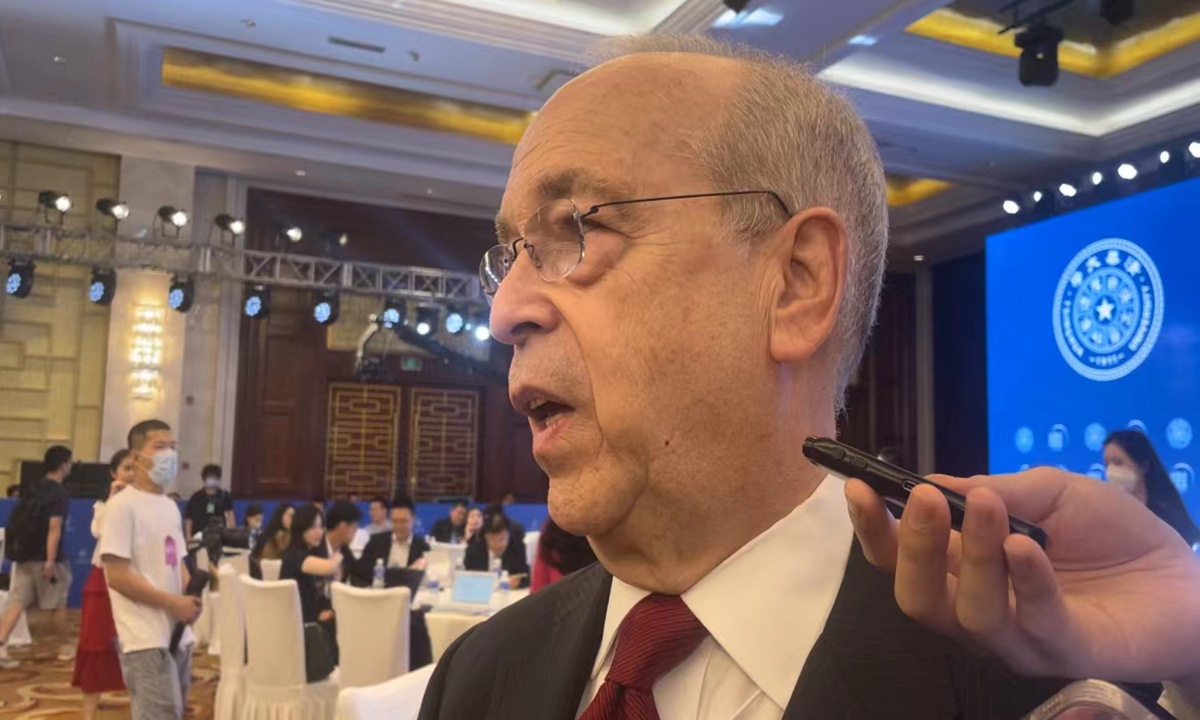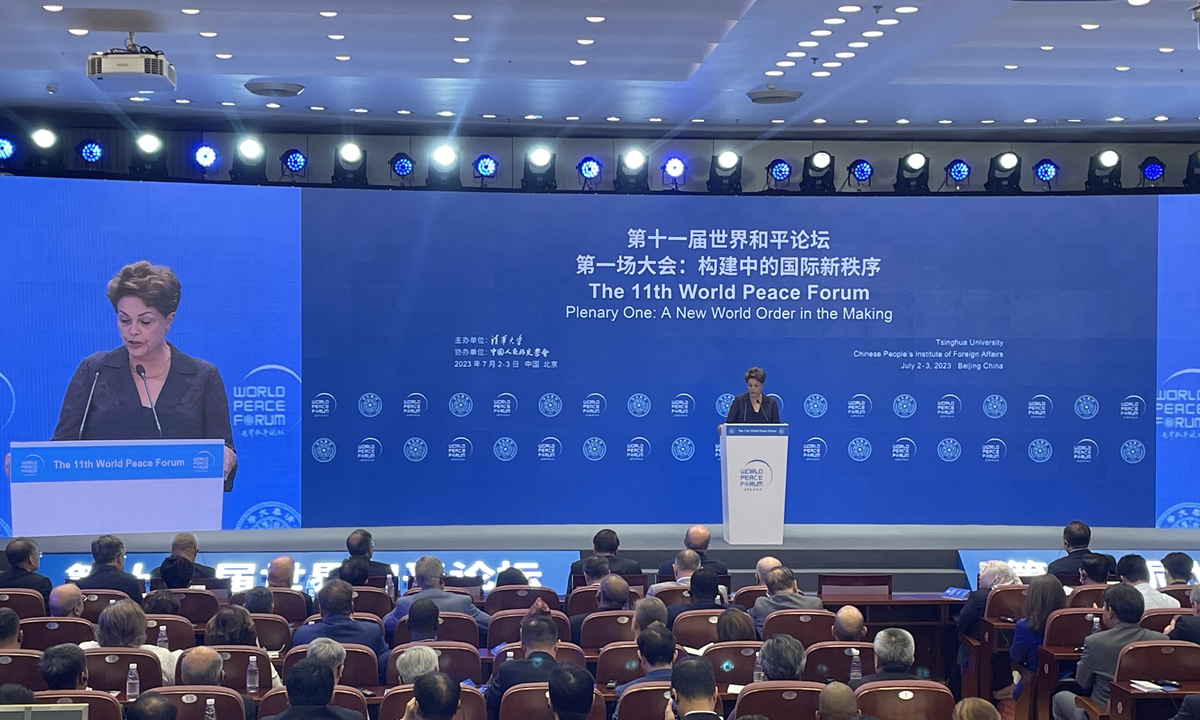Exclusive: China and US need to urgently find ways to reverse the mistrust: former US assistant secretary of state

Daniel Russel, Vice President for International Security and Diplomacy at the Asia Society Policy Institute, talks with the media at the 11th World Peace Forum in Beijing. Photo: Chen Qingqing/GT
Neither US leader or Chinese leader want conflict or war but conflict and war don't necessarily happen on purpose, they can come about by accident, which is worrisome, meaning we need to urgently find ways to reverse the mistrust between our countries, Daniel Russel, Vice President for International Security and Diplomacy at the Asia Society Policy Institute, told the Global Times on the sidelines of the 11th World Peace Forum in Beijing.
"I think there is a real risk that there could be an incident between China and the US that because we don't have good channels of dialogue and because mutual trust is at such a low level, an incident could quickly escalate into a crisis, and a crisis could potentially escalate into conflict, even though neither of our presidents, neither of our governments want that," Russel said.
As a former assistant secretary of state for East Asian and Pacific affairs at the US State Department, the US veteran diplomat said the two countries need to urgently find ways to reverse the mistrust between each other. "And it's going to take more than speeches. It is going to require real diplomatic efforts behind closed doors," he said.
"There's no one solution, I think the situation is so serious that we need to try every tool in our tool kit," Russel said, noting that for example, military officers from two countries getting to know each other was a critical part of the solution.
Once they meet, once they talk, they find that they have a lot in common. The goal is to reduce misunderstanding and to reduce mistakes, he said. "Militaries are always going to prepare for a dangerous, bad situation. They prepare for the worst. But the worst would be, if there is a mistake, a misunderstanding or a miscalculation that leads ultimately to a crisis," Russel said.
In commenting on the recent visit of US Secretary of State Antony Blinken to China and the remarks of the US senior diplomat about "peaceful co-existence" with China while "do and say things that China doesn't like", Russel said it's fine to have areas where we compete, it's fine to have areas where we disagree.
"China is not going to give up its priorities to accommodate the US. Neither is the US going to stop pursuing what we consider to be important. But in the past, that has not been an obstacle to the US and China cooperating, where our interests overlap, or where we each have a shared responsibility," he noted.
"So competition can be stressful and arguments are unpleasant, but we can finish the argument, set it aside, and also work together on the things that we agree on," Russel said.
"Mao Zedong and Richard Nixon could not have been more different, but that didn't stop them from working to find a path for mutual interest. We need to work to find a similar path today."


